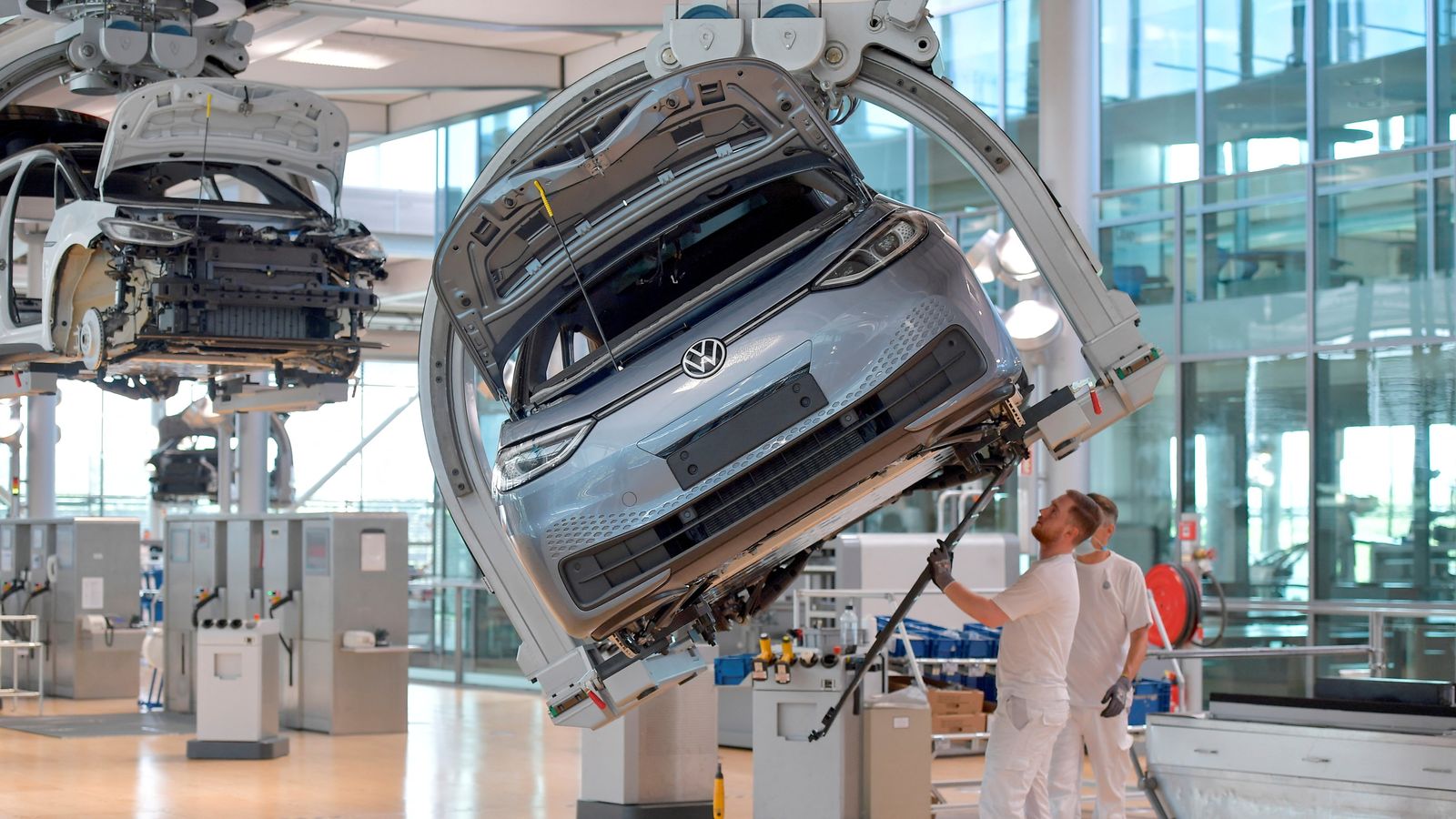The European Union has bowed to demands from carmakers across Europe and the British government for a delay to the introduction of 10% export tariffs on electric vehicles.
Brexit commissioner Maroš Šefčovič had initially refused calls to extend a trade deal deadline that, from January, 60% of a battery’s total value had to be sourced domestically to avoid the charge.
The so-called rules of origin would have applied to vehicles made in the bloc and sent to the UK – and vice-versa.
The commissioner was concerned that a delay would have knocked EU battery investment.
But he was reported, by the Financial Times on Tuesday, to have changed his mind and proposed a three-year extension.
The decision was formally adopted by the European Commission on Wednesday and is now expected to be implemented following consultations with member states.
The Commission also said it was setting aside an additional €3bn to boost the EU’s battery manufacturing industry.
TUI shareholders may get vote on end to London listing
Coventry Building Society tables bid to remutualise Co-operative Bank
Air France, Lufthansa and Etihad criticised over adverts that contained ‘misleading’ environmental claims
Europe’s car industry, many EU national governments and the UK have long argued that the tariff would have been piled on to the cost of new electric cars sold Europe-wide, making them less attractive to buyers at a time when households are already struggling to afford basics.
In addition to the inflationary pressures, the move was also seen as further harming demand for the vehicles at a time when they remain more expensive than the traditionally-powered cars they are set to slowly replace.
Carmakers on both sides of the Channel are currently struggling to source their own batteries, with most imported from China, despite a growing number of battery gigafactory projects getting the green light.
Please use Chrome browser for a more accessible video player
Nissan and Jaguar Land Rover‘s owner are among manufacturers to have secured government support for factories in the UK.
The additional €3bn announced in Brussels is also an incentive for investment.
Both the EU and UK have a 2035 deadline for a ban on the sale of new vehicles powered by petrol or diesel.
The government in Westminster had initially sought a 2030 timeframe but full implementation was overturned by prime minister Rishi Sunak on cost grounds, to the fury of carmakers, the wider business community and climate change activists.







